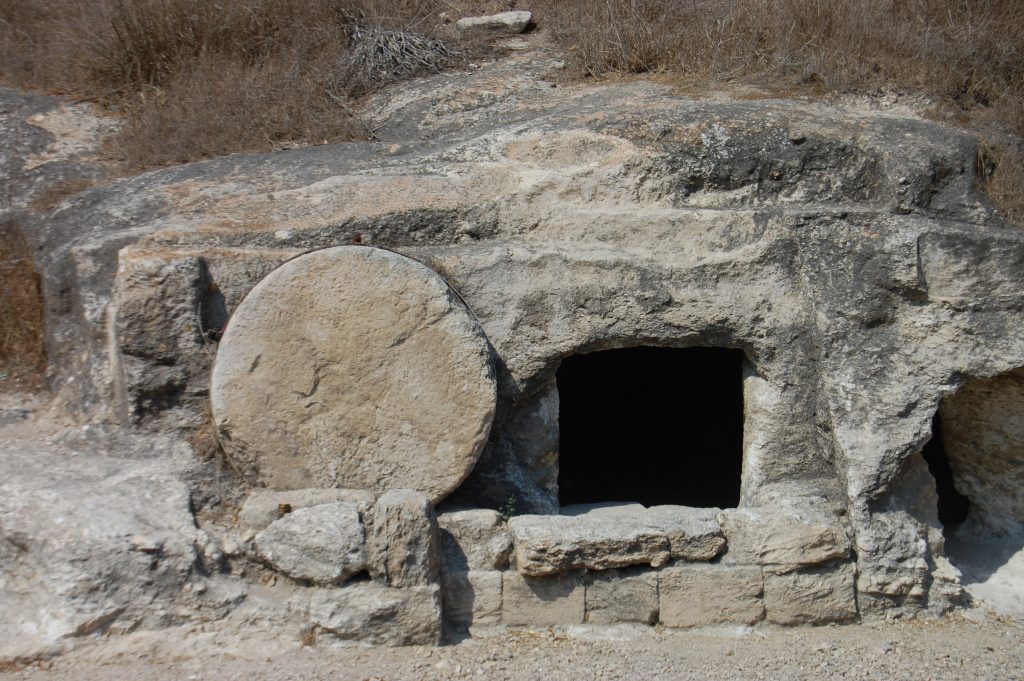
On December 26, stores start receiving Christmas returns. Some stores will even take your return, give you a receipt, and mail it to the place from which it was purchased. No inconvenience. No cost. Easy peazy.
That is what is most associated with Christmas now. Getting and returning STUFF.
But Easter now has similar associations. “Happy Easter” chirps the cashier at the department store where a Spring outfit is purchased or the grocery store. Similar to Christmas in that associations are made primarily to what will be purchased, eaten, or consumed in some way.
But an empty tomb and a risen Savior is often not a consideration, even in the minds of Christians. The gospels describe a cadre of believers who were preoccupied by the death of their Lord and the annointing of his deceased body, who rush to the tomb in respect.
It was when that group of women rushed to the tomb on Sunday morning that they were greeted by a man who said, “Jesus is waiting for you in Galilee.” This was a “what’s next” moment for the disciples.
It is easy to imagine Jesus posing the same question for us. “What’s next for you? What response do you give to an empty tomb and someone saying ‘The Lord is waiting for you.'”
The Lord’s, often fraught, life, death, and resurrection call for a response from us. A person with any awareness, any gratitude will say, ‘How can I show Jesus my thankfulness for what he did?” If Easter is nothing more than eggs, spring wardrobe, and a really big Easter gathering after church, then what the Christ did for us is lost to culture’s distractions.
Jesus said, “If any want to become my followers, let them deny themselves and take up their cross and follow me,” Matthew 16:24. Jesus is pretty clear about what he expects. To reduce “Easter” to the greed of who can collect the most eggs is a huge insult to the empty tomb and the risen Savior.
What’s next for you?
